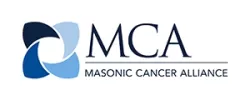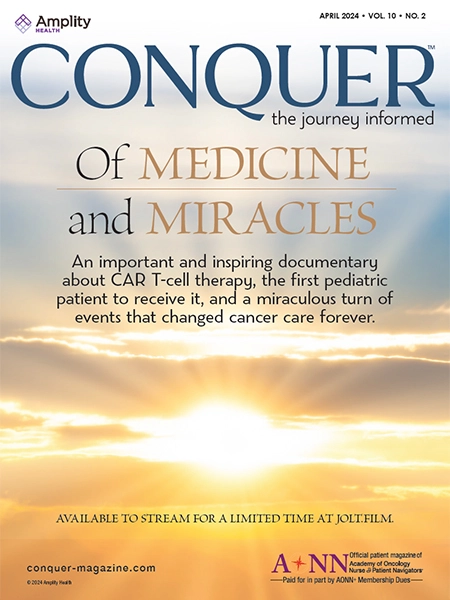Name: Dawn
Position: Nurse Navigator
Subject: Leadership Roles
Question:
Hi Lillie, I am currently working as a nurse navigator in radiation oncology (specifically for our patients getting treatment on our CyberKnife machine). I love radiation and would like to advance within my specialty. However, my department is small and doesn't have a call for a manager or director position. I was charged with seeking out other opportunities that I might be able to lobby for and have implemented in my hospital. In your experience and knowledge, are there any leadership roles that would intertwine well in radiation with navigation for a department of only 5 nurses. This question may be too vague to answer but I am trying to seek out all avenues. I love my hospital, the people I work with, and the relationships I’ve created, but am I feeling stuck in my current role with no obvious steps forward. I am currently working on my MSN in executive leadership and I am part of a program called the emerging leaders in my hospital. My directors are supportive and would love to keep me but could not get a position approved. I am waiting to hear about a director role at another hospital in my system, but if that does not happen, I would like to continue to explore how to bring something into my hospital. I am passionate about efficiency, patient experience, utilizing technology, and continuing to learn and grow. Any input would be greatly appreciated. Thank you!
Dawn
Answer:
First, I commend you for wanting to advance yourself, as well as focusing your education on executive leadership! Consider this—are there ONNs in the department of surgery or the department of medical oncology? It would be perfect to have a nursing manager over ALL the ONNs within your institution. Your mission would be focusing on continuity of care, ensuring there is a smooth transition as a patient moves through their phases of treatment, and into survivorship/end of life. Additionally, you may want to work on initiatives with palliative care for those patients who are getting palliative radiation. Also, for those who are hopefully going to become long-term survivors, their last phase of acute treatment usually is radiation therapy. If you don’t have a survivorship program for all cancer survivors, consider this being your focus—to develop and become the director of cancer survivorship! Let me know how things progress. I will be rooting you on! L
Name: Jane
Position: Nurse Navigator
Subject: CoC Standards for Survivorship
Question:
I am interested to know what you would recommend as a starting point for Survivorship Program services to be offered in my 350-bed community hospital. The new CoC Standards, as I am sure you know, have broadened the scope of services to be offered and removed the requirement of the Survivorship Care Plan (SCP). I would like to have some suggestions to offer to our cancer committee going forward. Up to this point, we have offered the SCP to curative patients, but have had some barriers to delivering the plans. Do you feel that the SCP should be the standard going forward? (I should add that I am new to nurse navigation after many years of infusion treatment with charge responsibilities.)
Answer:
I actually served on the CoC Standards Committee and lobbied for more than a year to edit this standard in a major way so that it would provide more substance to patients. That said, first, look at your statistics. How many patients are treated annually and for what type of cancer? Among them, how many are survivors? Then look at what type of survivorship education is needed for each patient population, or collectively, for all cancer survivors. You can hold webinars as well as live seminars for cancer survivors focusing on topics such as: living with fear of recurrence; methods to reduce your risk of recurrence; nutrition; exercise; stress management; important screenings for cancer survivors based on the type of cancer they had, their sex, age, and family history; understanding genetics and who benefits from genetic testing; weight management; and clinical trials for cancer survivors.
A topic we do annually at Johns Hopkins that is part of the Head & Neck Cancer Survivors Seminar is called Enjoying Eating in Public Again. H&N patients avoid dining out. This means they lose joy in their lives because we socialize over food or we celebrate by going to a restaurant with family and friends. In the seminar, patients learn basic strategies such as: looking online at the menu in advance; calling the restaurant and reserving a table in the back rather than near the front where everyone stares at you when they come in; preselecting the entrée and requesting that it be precut into tiny pieces, with half of it already placed in a container to take home; and making sure someone refills water glasses frequently because the patient needs to wash down their food more easily.
You may know that I am a strong believer in starting survivorship care at the time of diagnosis. It should not be an afterthought at the end of treatment. Ask patients what milestones, such as a daughter’s wedding, will be happening while they are receiving active treatment so these events are dovetailed into the treatment planning process. The patient shouldn’t be booked for a mastectomy a week before her daughter is being wed. And ask the patient about their life goals. Where do they see themselves in 1 year, 3 years, 5 years, and 10 years from now? Do they plan to start a family? If so, fertility preservation would be needed before chemotherapy gets underway. Are they up for a promotion? Then the patient will likely want to work throughout treatment. This means radiation therapy taking place at 7 am before work, or at 6 pm after work, instead of in the middle of the day, and so that chemo-timed side effects happen on the weekends. Another example is having support groups for survivors. This is also truly patient-centered care. If you implement this, tell the CoC surveyor about it because it counts as a Survivorship Care Program component.
Let me know how it goes!! L













